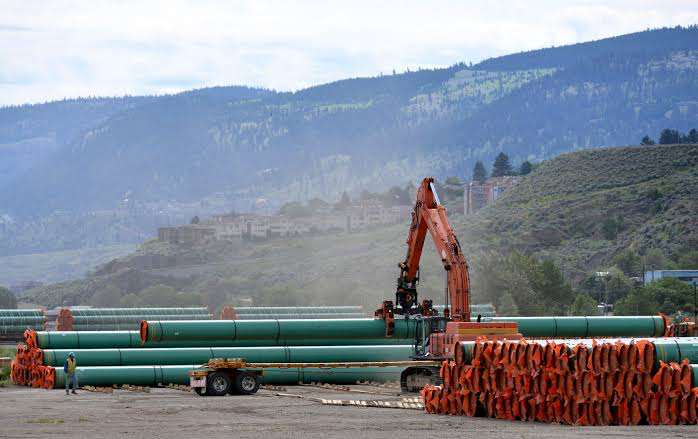Canadian pipeline company Pembina Pipeline Corp (Pembina) is throwing cold water on the idea of investing in the newly expanded Trans Mountain pipeline (TMX). The company’s chief financial officer, Cameron Goldade, expressed significant reservations during a recent earnings call, highlighting “tremendous uncertainty” surrounding shipping tolls as a major deterrent.
From Potential Partner to Cautious Observer
Pembina’s stance marks a shift from its earlier expressions of interest. In 2021, the company partnered with an Indigenous organization, the Western Indigenous Pipeline Group, to explore acquiring a stake in the government-owned pipeline. This partnership signaled Pembina’s initial enthusiasm for the project. However, recent comments by Goldade suggest a change of heart. He downplayed the Trans Mountain investment opportunity, stating that Pembina is not actively pursuing involvement at this time.
The Canadian government’s plan to launch a divestment process for the Trans Mountain pipeline later in 2024 adds another layer of complexity. The project, which began commercial operations last week, has been a source of controversy from the outset. Cost overruns have plagued the project, with construction ballooning to C$34 billion ($24.88 billion) – more than four times the original budget. Analysts predict the government may face challenges in recouping its investment.
High Costs, High Tolls? Shippers Seek Relief
Shipping tolls on the pipeline are a major sticking point. Pipeline user companies, known as shippers, argue that the high construction costs translate to unreasonably high tolls. This contention is a significant hurdle for the project’s future profitability. Canadian regulators are scheduled to hold hearings this year to determine the final tolls. The outcome of these hearings will be crucial in determining the attractiveness of the Trans Mountain investment for Pembina and other potential stakeholders.
Despite the investment uncertainty, the Trans Mountain expansion boasts significant potential. The pipeline will transport an additional 590,000 barrels of oil per day from Alberta’s oil sands to Canada’s west coast. This increased capacity creates new opportunities for oil exports, opening doors to markets in Asia and the U.S. west coast. However, realizing this potential hinges on resolving the issue of shipping tolls. If the tolls remain excessively high, the project’s economic viability will be significantly compromised.
Beyond Pembina: A Wider Impact
Pembina’s hesitation is likely to have ripple effects. Other potential investors may also adopt a wait-and-see approach, delaying investment decisions until the toll situation is clarified. This could slow down the project’s full integration and limit the economic benefits it could bring. The Canadian government will need to address the concerns of pipeline shippers and potential investors to ensure the success of the Trans Mountain divestment process.
The coming months will be critical for the Trans Mountain pipeline. Negotiations between the government, pipeline shippers, and potential investors like Pembina will be key in determining the project’s future. Additionally, the outcome of the regulatory hearings on shipping tolls will play a significant role. If these issues can be resolved in a way that satisfies all stakeholders, the Trans Mountain expansion has the potential to be a major boon for Canada’s oil industry and the national economy. However, if the challenges remain unaddressed, the project’s future could remain uncertain.
Source: Reuters



